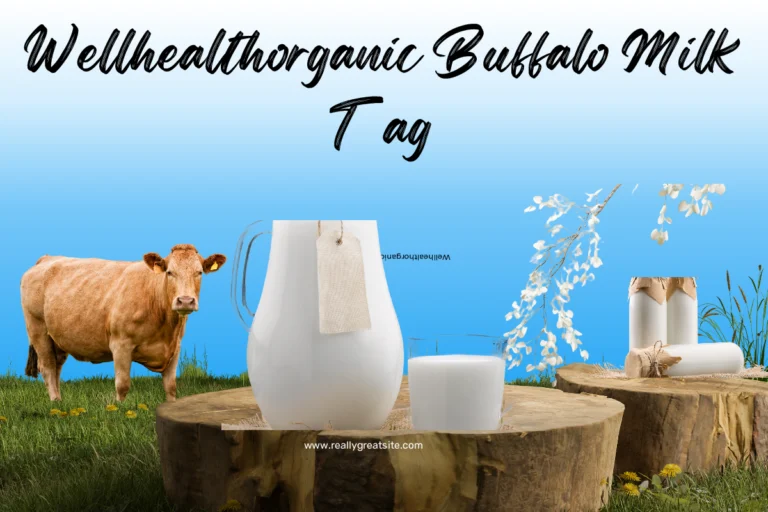Wellhealthorganic.com:Jaggery-with-Incredible-Health-Benefits

Jaggery, a natural sweetener, is gaining global recognition for its remarkable health benefits. Unlike refined sugar, jaggery is unprocessed and retains the essential nutrients found in sugarcane or palm sap. The blog wellhealthorganic.com:jaggery-with-incredible-health-benefits dives into the details of how jaggery contributes to better health and why it’s an excellent alternative to sugar.
What is Jaggery?
Jaggery, commonly called “gur” in India, is a traditional sweetener made by boiling raw, concentrated sugarcane juice or palm sap. It is processed without the use of chemicals, retaining its natural goodness. This makes jaggery a nutrient-dense food that is far superior to refined sugar.
The golden-brown substance is a staple in many South Asian kitchens, often used in desserts, beverages, and even savory dishes. The process of making jaggery ensures that it is loaded with essential minerals and antioxidants, which contribute to its numerous health benefits.
How is Jaggery Made?
The process of making jaggery is natural and involves minimal processing, ensuring it retains its nutritional value. Here’s an overview of how jaggery is made:
- Extraction of Juice: Fresh sugarcane or palm sap is harvested and crushed to extract the juice. This juice is the base for jaggery production.
- Clarification: The extracted juice is filtered to remove impurities such as dirt and fibers. This ensures the final product is clean and safe for consumption.
- Boiling: The filtered juice is boiled in large, open pans over a wood or coal fire. It is continuously stirred to prevent it from burning. During this process, the water in the juice evaporates, and the juice thickens.
- Addition of Natural Agents: Lime or other natural clarifying agents are sometimes added to remove remaining impurities and enhance the color and texture of the jaggery.
- Concentration: As the juice thickens, it transforms into a viscous mass. This concentrated liquid is then cooled and shaped into blocks or other forms.
- Molding and Cooling: The molten jaggery is poured into molds or spread onto flat surfaces to cool and solidify. Once cooled, it is cut into pieces or formed into traditional shapes.
Since jaggery is unrefined, it retains minerals like iron, magnesium, and potassium, making it a nutrient-rich sweetener. The absence of chemicals in the production process is what differentiates jaggery from refined sugar.
Why Choose Jaggery Over Refined Sugar?
Refined sugar is stripped of its nutrients during processing, leaving it as a source of empty calories. Jaggery, on the other hand, retains trace minerals like iron, magnesium, and potassium. These nutrients not only enhance its flavor but also make it a healthier alternative to sugar. According to wellhealthorganic.com:jaggery-with-incredible-health-benefits, jaggery’s natural composition provides benefits that go beyond sweetness.

Health Benefits of Jaggery
Jaggery offers a variety of health benefits, making it an essential addition to your diet. Let’s explore some of the incredible ways jaggery can improve your well-being.
Boosts Digestion Naturally
Jaggery has been used for centuries as a natural remedy for digestive issues. Its high fiber content stimulates digestive enzymes, promoting smoother digestion. Eating a small piece of jaggery after meals is a common practice to prevent bloating and constipation.
Aids in Blood Purification
One of the most impressive benefits of jaggery is its ability to purify the blood. Regular consumption helps eliminate toxins, leading to healthier skin and improved overall health. The insights shared by wellhealthorganic.com:jaggery-with-incredible-health-benefits emphasize its role in detoxification.
Supports Anemia Prevention
Rich in iron, jaggery is an excellent food for individuals prone to anemia. It boosts hemoglobin levels in the blood, ensuring oxygen is effectively transported throughout the body. Incorporating jaggery into your diet can help combat fatigue caused by iron deficiency.
| Nutrient | Amount in 100g of Jaggery |
|---|---|
| Iron | 11 mg |
| Potassium | 1056 mg |
| Magnesium | 70-90 mg |
Enhances Immune Function
Jaggery is packed with antioxidants and essential minerals like zinc and selenium. These nutrients strengthen the immune system, protecting the body from common infections. During flu season, jaggery can act as a natural remedy for colds and coughs, soothing the throat and reducing irritation.
Regulates Blood Pressure
The potassium and sodium content in jaggery helps balance electrolytes, which is essential for maintaining stable blood pressure levels. As mentioned on wellhealthorganic.com:jaggery-with-incredible-health-benefits, regular consumption can significantly contribute to cardiovascular health.
Promotes Weight Management
Despite being a sweetener, jaggery can assist in weight management. Its potassium content helps reduce water retention, improving metabolism. Consuming jaggery in moderation can help regulate weight while satisfying sweet cravings naturally.
Improves Respiratory Health
Jaggery is known for its ability to cleanse the lungs and respiratory tract. When combined with sesame seeds or ghee, it can alleviate symptoms of asthma, bronchitis, and other respiratory issues. This is why jaggery is often included in Ayurvedic remedies.
Relieves Joint Pain
For individuals suffering from arthritis or joint pain, jaggery combined with ginger or warm milk can provide relief. It contains natural anti-inflammatory properties that help reduce swelling and discomfort.
Supports Skin Health
The blood-purifying properties of jaggery lead to healthier skin by reducing acne and pigmentation. Its antioxidants fight free radicals, slowing down the signs of aging and leaving the skin glowing.
Detoxifies the Liver
Jaggery acts as a natural detoxifier for the liver. It aids in flushing out harmful toxins, ensuring the liver functions optimally. Consuming jaggery with warm water is a simple way to support liver health.
How to Incorporate Jaggery Into Your Diet
Adding jaggery to your diet is simple and versatile. It can be used as a sweetener in tea or coffee, a binding agent in desserts, or even in savory recipes like sambhar or curries. According to wellhealthorganic.com:jaggery-with-incredible-health-benefits, replacing refined sugar with jaggery is a small but impactful step toward a healthier lifestyle.
Also Read: Wellhealthorganic.com Effective Natural Beauty Tips
Comparison: Jaggery vs. Refined Sugar
| Aspect | Jaggery | Refined Sugar |
|---|---|---|
| Nutritional Value | High (minerals, vitamins) | None |
| Processing Method | Unprocessed | Chemically processed |
| Health Benefits | Numerous | Limited |
| Glycemic Index | Lower | Higher |
Who Should Avoid Jaggery and Why?
While jaggery is a healthier alternative to refined sugar, it may not be suitable for everyone. Here’s who should avoid or limit their consumption of jaggery and why:
1. Individuals with Diabetes
Jaggery has a lower glycemic index compared to refined sugar, but it is still a concentrated source of sugar. Consuming jaggery can lead to spikes in blood sugar levels, making it unsuitable for people with diabetes or those managing blood sugar levels.
2. People with Obesity or Weight Issues
While jaggery contains more nutrients than sugar, it is calorie-dense and should be consumed in moderation. Overeating jaggery can contribute to weight gain, which may be a concern for individuals trying to lose weight.
Also Read: Labsys Health Kerala Department of Health and Family Welfare
3. Those with Allergies or Sensitivities
In rare cases, some individuals may experience allergic reactions to jaggery, particularly if it is made from palm sap or if impurities remain in the product. Symptoms like rashes or gastrointestinal discomfort should be monitored.
4. Patients with Certain Digestive Disorders
People suffering from Irritable Bowel Syndrome (IBS) or other digestive conditions should be cautious, as jaggery may aggravate symptoms in sensitive individuals. Its fiber content, though generally beneficial, can sometimes cause bloating or discomfort.
5. Individuals with Dental Issues
Jaggery is sticky and high in sugar, which can adhere to teeth and increase the risk of cavities if oral hygiene is not maintained. Those prone to dental issues should consume it sparingly.
Also Read: Wellhealthorganic.com Vegetarian Protein Sources Comprehensive Guide
6. Pregnant Women with Gestational Diabetes
Although jaggery is natural, it should be avoided by pregnant women diagnosed with gestational diabetes due to its high sugar content, which can affect both the mother and baby.
Recipes That Use Jaggery
1. Jaggery Tea
- Ingredients: Tea leaves, water, milk, and jaggery
- Recipe: Boil water and tea leaves. Add milk and let it simmer. Stir in jaggery for sweetness.
2. Jaggery Rice (Gur Ke Chawal)
- Ingredients: Rice, jaggery, ghee, and cardamom
- Recipe: Cook rice and mix it with melted jaggery. Add a dash of ghee and cardamom for flavor.
Also Read: Sheera Recipe Guide: Sweet Delight for Any Occasion
3. Jaggery Peanut Brittle
- Ingredients: Jaggery, peanuts, and ghee
- Recipe: Melt jaggery in a pan, add peanuts, and pour the mixture onto a greased surface. Let it cool and harden.
Conclusion
Jaggery is more than just a sweetener; it’s a powerhouse of nutrients with a long list of health benefits. From improving digestion to boosting the immune system, jaggery plays a crucial role in promoting overall health. Its versatility in cooking and natural sweetness make it a worthy addition to your daily diet.
For a deeper dive into the benefits of this natural sweetener, visit wellhealthorganic.com:jaggery-with-incredible-health-benefits. This blog offers valuable insights into how jaggery can transform your health, one sweet bite at a time. Embrace the goodness of jaggery and experience its incredible impact on your well-being.
Also Read: Wellhealthorganic Vitamin B12: A Comprehensive Guide






